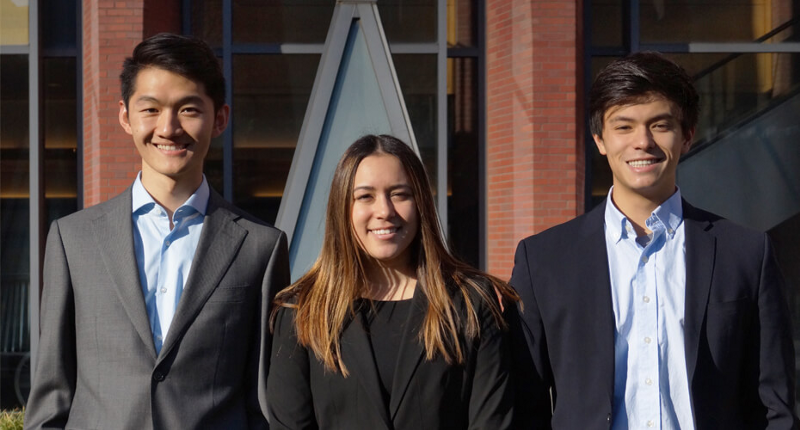
Cellview Sciences Wins Y-Prize 2018
by Lida Tunesi
Each year, groups of students at the University of Pennsylvania pitch competing ideas on how to turn technology developed by Penn engineers into the next big thing.
The winning team receives $10,000.
The Y-Prize is sponsored by Penn Engineering, Wharton’s Mack Institute for Innovation Management, Wharton Entrepreneurship, the Penn Center for Innovation, and intellectual property commercialization company IP Group. Each year the organizers choose two technologies developed by Penn Engineering research groups, and competitors come up with commercial applications the technologies are well suited for, developing business plans to make their ideas a reality.
“The Y-Prize is an excellent opportunity for students and faculty alike to think about engineering inventions in the marketplace. The engagement it provides is central to the Penn Engineering vision, and dovetails in a wonderful way with the University’s vision vis a vis innovation,” says Kathleen Stebe, Deputy Dean for Research and Innovation for Penn Engineering, and Richer and Elizabeth Goodwin Professor in the Department of Chemical and Biomolecular Engineering.
This year’s Grand Prize winner was Cellview Sciences. They proposed a minimally invasive way to conduct genetic tests on embryos prior to in vitro fertilization in order to prevent miscarriages. Their idea relies on carbon nanopipettes (CNPs), developed in the lab of Haim Bau, professor in the Department of Mechanical Engineering and Applied Mechanics (MEAM).

Runner-up teams Carbolytics, NanoXCell Therapeutics, and Exemplar each received $1,500. Carbolytics and NanoXCell planned to use CNPs to manipulate individual cells for high-throughput medical research, and to deliver gene therapy to patients with genetic skin disorders, respectively. Exemplar proposed using another technology, nanotribological printing, to add moisture resistant patterns to flying robots. Nanotribological printing was developed by Robert Carpick, John Henry Towne Professor and Chair of MEAM, and Harman Khare, Research Project Manager in the Carpick Research Group.

Carbon nanopipettes are made of small, hollow glass tubes with a nanoscopically thin layer of carbon on their interior surface and projecting from their tips, making it possible to do nanoscale work with macro-level control. Because they are hollow, CNPs can be used for injection, and because the carbon is conductive, they can also be used as sensing devices.
Thanks to their nanoscale tips, the pipettes are also minimally invasive. “One of the most attractive characteristics of CNPs is their ability to pierce cells without causing significant damage,” says Henry Zhou, who will be graduating from the Vagelos Scholars Program for Molecular Life Sciences this May. Zhou and his teammates Ellen Naruse and Michael Lee, both Wharton seniors, realized this would be useful in genetic screenings of embryonic cells for in vitro fertilization.
Some genetic abnormalities can prevent the embryo from implanting, or can cause miscarriages later in pregnancy. The goal of these screenings is to find embryos that have a higher chance of resulting in a successful and healthy pregnancy.
Testing methods already exist, but as Lee explains, “current techniques need to destroy cells to get genetic information, so physicians restrict which cells they test. This limits the test’s accuracy.” Because Cellview’s method would do so little damage, the team hopes doctors could use it to test many cells and thus provide more reliable results.
The procedure would involve using CNPs to inject specially designed molecules into cells. These molecular “beacons” would be designed to match up with specific problem-causing genes. If the beacon finds its match, it fluoresces, or lights up, letting the doctor know there could be an issue.
“Next we will conduct lab experiments in order to assess our idea and develop a working prototype,” says Naruse.
The winning team is also automatically entered the semifinals of the Penn Wharton Startup Challenge.
